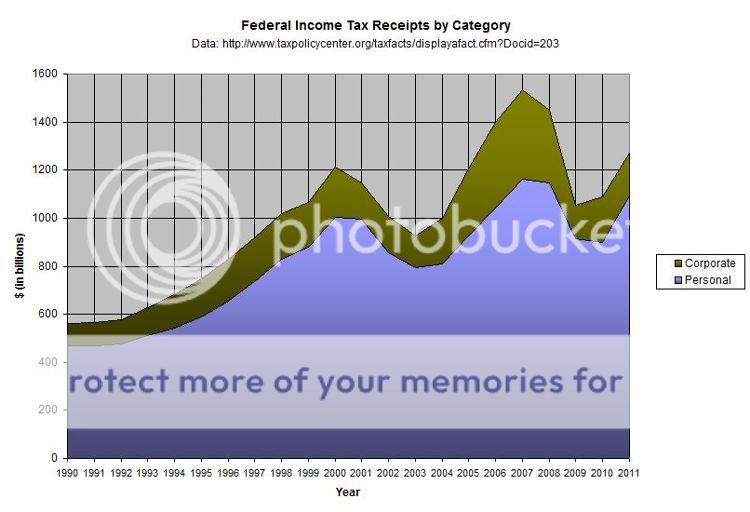- Joined
- Jul 13, 2012
- Messages
- 47,695
- Reaction score
- 10,467
- Gender
- Male
- Political Leaning
- Other
I'm not talking about businesses, I'm talking about the federal government's budget. It's irrelevant that private businesses had to rework their budgets. It has nothing to do with the fact that Clinton reduced spending and raised taxes. That is exactly the kind of compromise that could begin to meaningfully reduce our deficit, and it's an approach that Democrats have championed and Republicans have stonewalled.
The point is that tax revenues increased so dramatically because the business base was so stoked. After 1/1/00, the bottom fell out of the boom economy and the tax revenues immediately started to fall.
Before you go wild and find that the revenues of 2000 were good, recall that the revenues received in 2000 were generated by activities in 1999.

